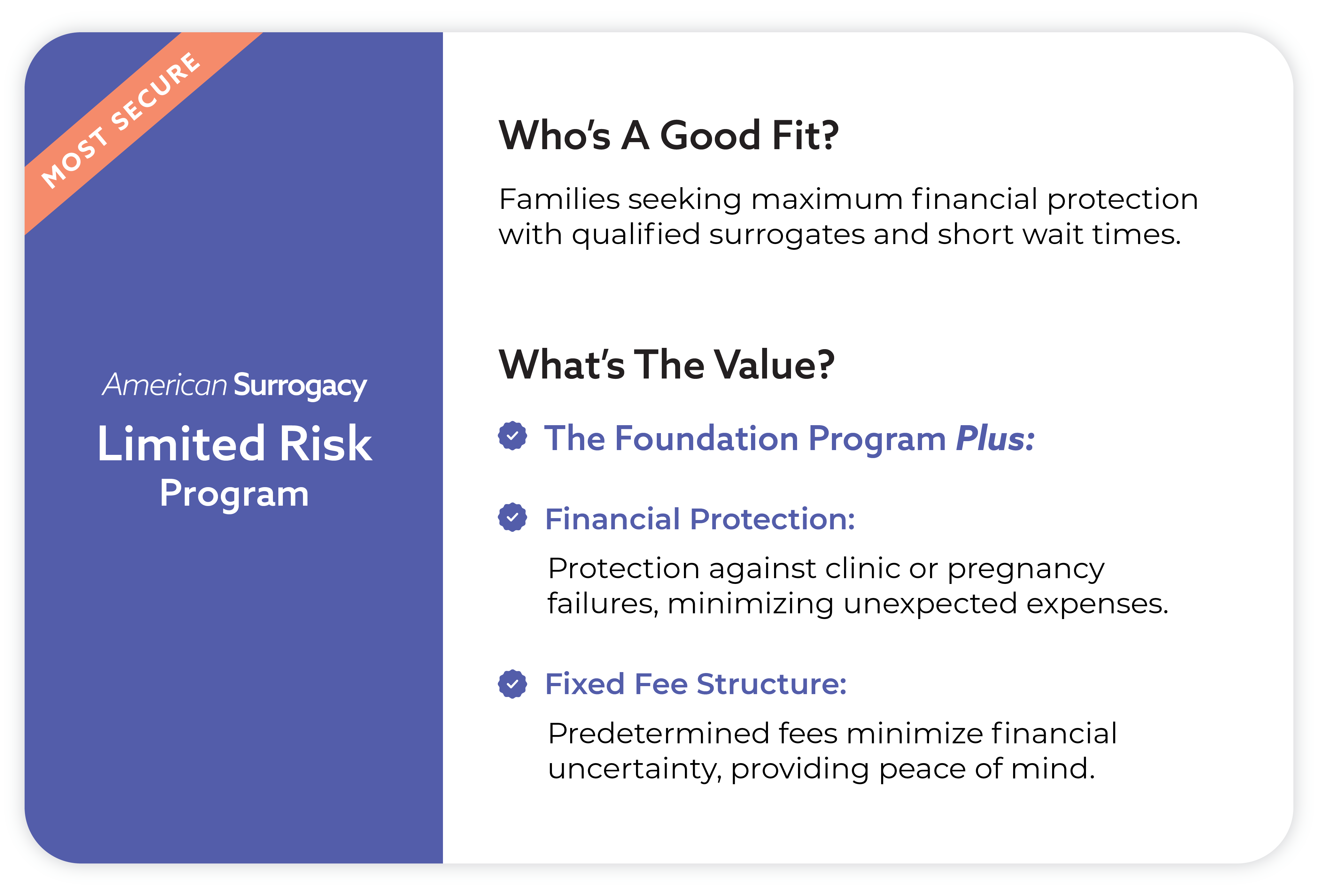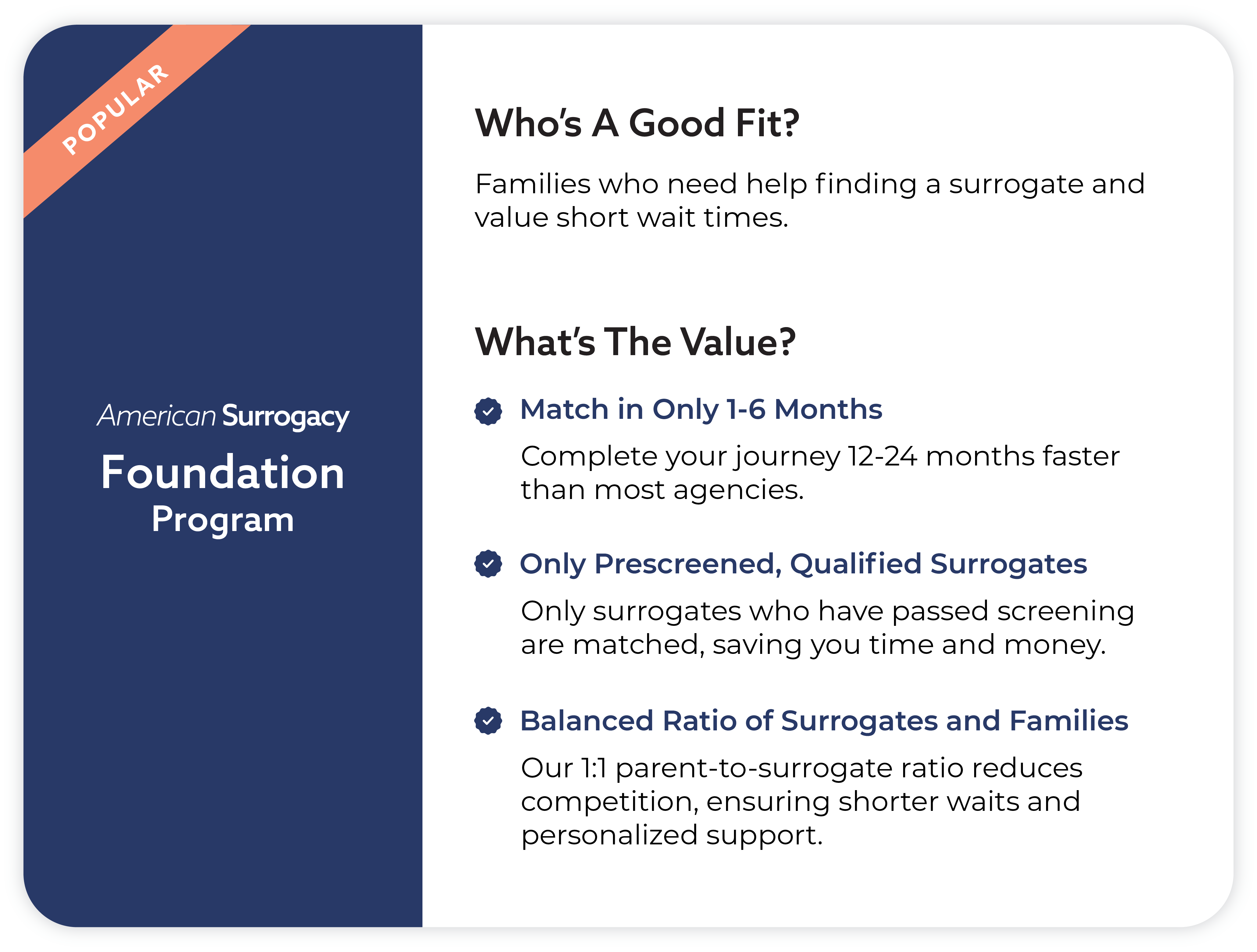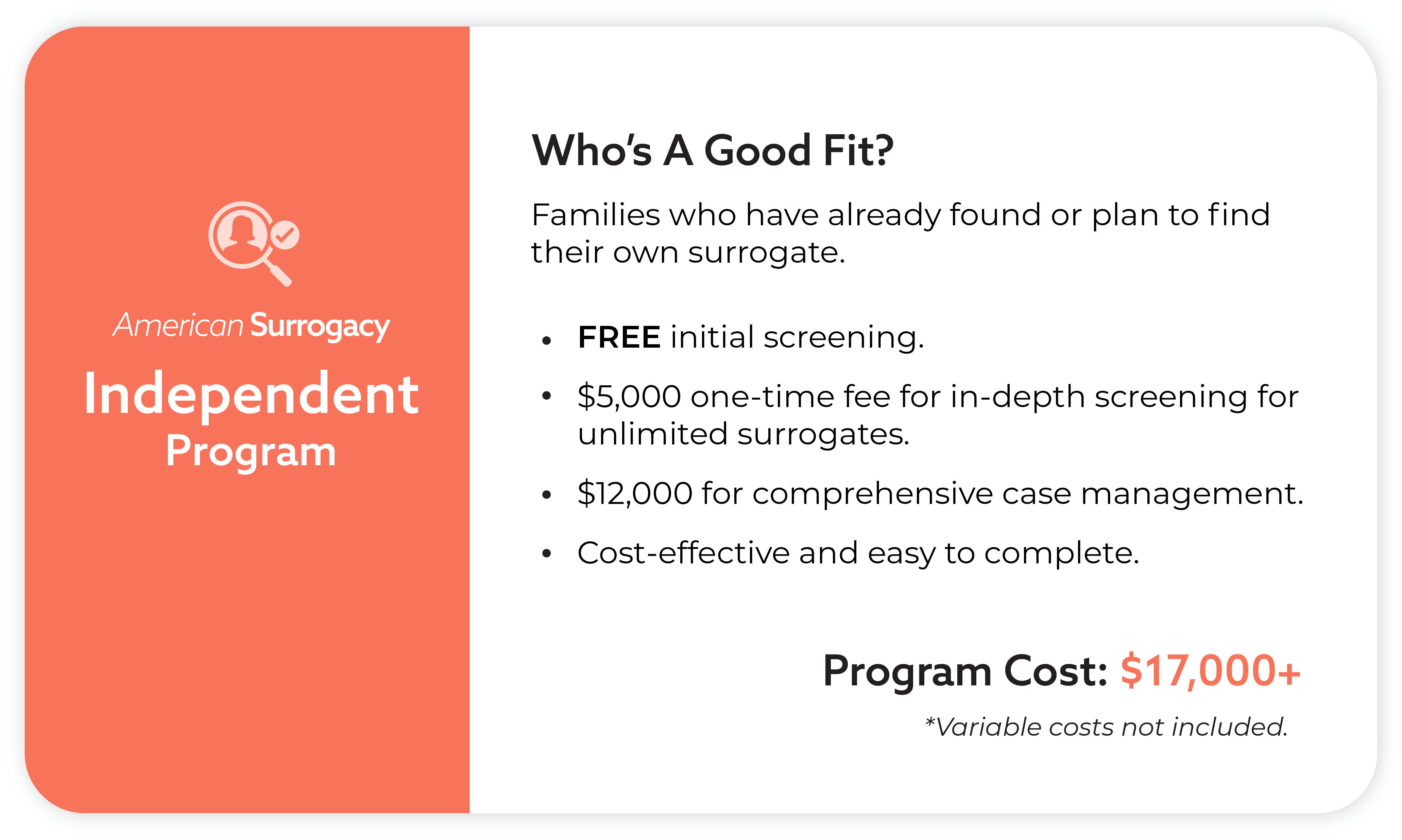If you're considering growing your family through surrogacy, understanding Maine surrogacy laws is a vital first step. While Maine is one of the most surrogacy-friendly states in the country, navigating the legal process still requires careful planning and the right professionals by your side.
At American Surrogacy, we help intended parents and surrogates confidently pursue their journey, no matter where they live. With our experience and nationwide network, we can guide you through Maine’s legal landscape and even connect you to opportunities in other states if needed.
Surrogacy Laws in Maine
Maine is a favorable state for surrogacy, thanks to the Maine Parentage Act, which explicitly permits and regulates both gestational and traditional surrogacy. This law supports comprehensive protections for intended parents, surrogates, and children born via surrogacy.
- Maine Revised Statutes Title 19-A, Chapter 61 governs surrogacy contracts and parentage.
- Both compensated and altruistic surrogacy are legal and enforceable.
- The law is inclusive of all family types, including LGBTQ+ individuals and couples.
You can view the legislation here: Maine Parentage Act
Is Paid Surrogacy Legal in Maine?
Yes, compensated surrogacy is legal in Maine. The law permits intended parents to offer payment to surrogates for their time, risk, and effort.
At American Surrogacy, we work with surrogates across the country, ensuring you can match with someone aligned with your values and preferences, regardless of location.
Learn More About Surrogate Compensation
Are Surrogacy Contracts Enforceable in Maine?
Yes, surrogacy contracts are fully enforceable in Maine under the state’s statutory framework. The contract must meet specific requirements, including:
- Being in writing and signed by all parties.
- Executed before any medical procedures begin.
- Reviewed independently by attorneys representing both parties.
Our specialists at American Surrogacy connect you with lawyers who can help you meet these legal standards while prioritizing your unique needs.
Surrogacy Contract Checklist
Your surrogacy agreement in Maine should include:
Compensation for the surrogate, reimbursements and handling of unexpected costs. Who makes decisions about embryo transfers, selective reduction, pregnancy termination or cesarean delivery? Wellness expectations, travel restrictions and communication preferences. How and when the intended parents will be recognized as the child’s legal guardians. Clear methods for resolving disagreements—without jeopardizing the journey. What happens if one party needs to end the agreement early?
When Do I Need a Surrogacy Contract in Maine?
Surrogacy contracts should be drafted and signed after you’ve matched with a surrogate but before beginning any fertility treatments. This stage is critical to protect everyone's legal rights and define expectations.
Learn More About the Surrogacy Timeline
How Will American Surrogacy Support Me During the Contract Stage?
From day one, our legal and case management teams will help you:
Explaining complex legal language in plain terms Assisting with contract negotiations and feedback loops Coordinating timelines between medical and legal milestones Ensuring all documentation is signed and submitted on time Connecting you with a surrogacy attorney near you How We Help You
LGBTQ+ Surrogacy Laws in Maine
Maine law does not discriminate based on sexual orientation or marital status. LGBTQ+ individuals and couples can become parents through surrogacy and are treated equally under the law.
- Intended parents can appear on the child’s birth certificate.
- Second-parent adoption is not required if a pre-birth order is granted.
Abortion Laws in Maine and Contract Termination Clauses
Maine currently protects abortion access up to the point of viability. All surrogacy contracts address pregnancy termination, outlining:
- Who has decision-making authority
- Under what circumstances termination may occur
Our team ensures both parties are aligned on these sensitive topics. And if Maine’s laws ever become restrictive, we can match you with a surrogate in a more accommodating state.
Surrogacy Laws for Establishing Parentage in Maine
Maine allows pre-birth orders for married and unmarried intended parents, regardless of biological connection or sexual orientation. A judge reviews the surrogacy agreement and issues a court order naming the intended parents on the child’s birth certificate.
How to Get a Pre-Birth Order in Maine
- Is a hearing required? In most cases, a hearing is required, but not always.
- Timeline: Pre-birth orders are typically issued during the second trimester, and birth certificates are available shortly after delivery.
International Surrogacy Laws
Maine does not restrict international surrogacy arrangements. However, intended parents should consult an immigration attorney to address issues related to citizenship and travel.
The Role of a Surrogacy Attorney in Maine
A surrogacy attorney will:
- Draft or review your legal agreement
- Secure your parentage order
- Advise you throughout the process
We can help you find a qualified surrogacy attorney in Maine.
How Much Does a Surrogacy Lawyer Cost?
Legal costs vary, but in general:
- Fees range from $5,000 to $15,000.
- Intended parents pay for the surrogate’s legal representation.
With American Surrogacy, these costs are included in your program fee, so there are no surprises.
Find a Surrogacy Attorney Near Me
Here are some surrogacy-friendly attorneys in Maine:
Janene Oleaga is the founder of Oleaga Law LLC, a boutique law firm dedicated to family formation and reproductive rights. She represents intended parents, surrogates, egg donors, sperm donors, and embryo donors in matters related to assisted reproduction and adoption. Licensed to practice in Maine, New Hampshire, and New York, Janene has been recognized for her contributions, including being named to Maine Business Journal's "40 Under 40" in 2022. She actively advocates for pro-family legislation and has testified in support of fertility care access and confirmatory adoption in Maine.
Kathleen A. DeLisle is a partner at Nichols, DeLisle & Lightholder, P.C., based in Southborough, Massachusetts. She specializes in family law, reproductive rights, and all aspects of third-party reproduction cases. Admitted to practice in Massachusetts (1997), New Hampshire (2015), and Maine (2017), Kathleen has extensive experience in ART law. She has been involved in significant cases, including representing petitioners in matters securing parentage for children born through surrogacy.
Christopher M. Berry is an attorney at Berry Law, P.A., with offices in Bridgton and Gorham, Maine. He focuses on family formation, including adoptions and assisted reproductive technology cases, and is licensed to practice in Maine and New Hampshire. Christopher is a fellow of the American Academy of Adoption and Assisted Reproduction Attorneys. He graduated from Duke University and obtained his Juris Doctor from the College of William and Mary. His practice emphasizes comprehensive representation for all parties involved in adoption and surrogacy arrangements.
Explore Our Surrogacy Programs in Maine
American Surrogacy offers three tailored programs:
Limited Risk Program

Foundation Program

Independent Program

FAQ: Legal Aspects of Surrogacy in Maine
Are insurance companies required to cover IVF in Maine?
No. Maine does not mandate insurance providers to cover IVF.
Is an embryo considered a person in Maine?
No. Maine law does not define embryos as persons. Embryos are treated as property or potential life.
Is traditional surrogacy legal in Maine?
Yes. Both traditional and gestational surrogacy are legal under the Maine Parentage Act.
Do sperm and egg donors have parental rights?
No. Donors do not retain parental rights if there is a valid donor agreement.
Is there an IVF Tax Credit?
No. Maine does not currently offer a state tax credit for IVF-related expenses.
Ready to Start Your Surrogacy Journey?
Navigating Maine surrogacy laws can feel overwhelming — but you don’t have to do it alone. At American Surrogacy, we bring the legal expertise, compassionate support, and proven success you need to move forward with confidence.
While we have made every effort to present the most accurate and updated information on surrogacy in Maine, surrogacy laws are always subject to change. This article is not intended to be and should not be taken as legal advice. Please contact a local Maine surrogacy attorney with your questions and for the best legal information.